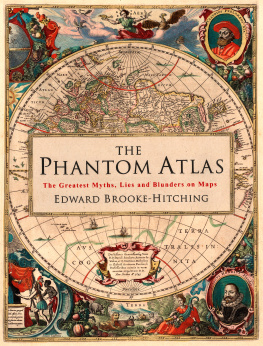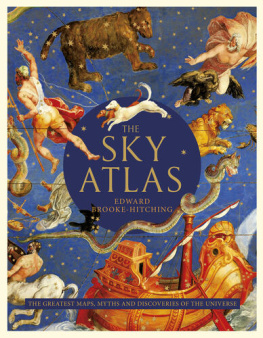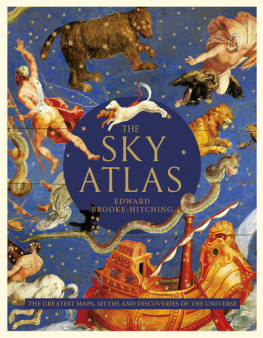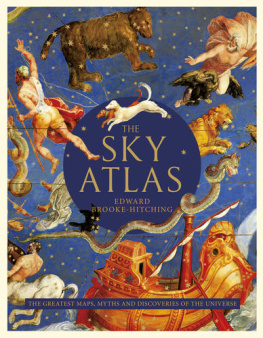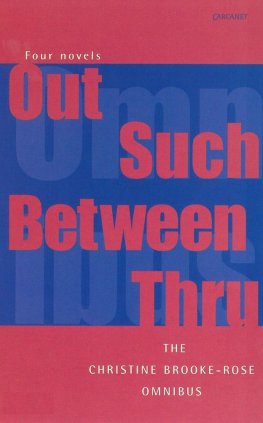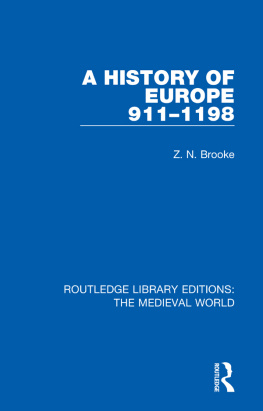Thank you for downloading this Touchstone eBook.
Join our mailing list and get updates on new releases, deals, bonus content and other great books from Touchstone and Simon & Schuster.
C LICK H ERE T O S IGN U P
or visit us online to sign up at
eBookNews.SimonandSchuster.com
We hope you enjoyed reading this Touchstone eBook.
Join our mailing list and get updates on new releases, deals, bonus content and other great books from Touchstone and Simon & Schuster.
C LICK H ERE T O S IGN U P
or visit us online to sign up at
eBookNews.SimonandSchuster.com

Touchstone
An Imprint of Simon & Schuster, Inc.
1230 Avenue of the Americas
New York, NY 10020
www.SimonandSchuster.com
Copyright 2015 by Edward Brooke-Hitching
Originally published in 2015 in Great Britain by Simon & Schuster UK Ltd.
All rights reserved, including the right to reproduce this book or portions thereof in any form whatsoever. For information, address Touchstone Subsidiary Rights Department, 1230 Avenue of the Americas, New York, NY 10020.
First Touchstone hardcover edition November 2015
TOUCHSTONE and colophon are registered trademarks of Simon & Schuster, Inc.
For information about special discounts for bulk purchases, please contact Simon & Schuster Special Sales at 1-800-456-6798 or .
Interior design by Jill Putorti
Jacket Design by Lewis Csizmazia
Library of Congress Cataloging-in-Publication Data is available.
ISBN 978-1-5011-1514-1
ISBN 978-1-5011-1517-2 (ebook)
For my parents (the best sports of all)
CONTENTS
INTRODUCTION
Sport; something that unbends the mind by turning it off from care.
Samuel Johnson
O n January 21, 2014, the head of the largest golf equipment company in the world told a conference of American industry professionals that their sport was dying. Addressing the recent dramatic fall in player numbers, Mark E. King, then CEO of TaylorMade, convened the meeting at Floridas Rosen Centre to appeal for suggestions as to how to rescue their game from mortal peril.
Weve lost five million over the last ten years! cried one speaker, Joe Beditz, CEO of the National Golf Foundation, as he stood backed by a giant projection that screamed 5,000,000 LOST. Five million! And thats out of thirty million! Figures showed thatin the United States at leastthe core group of golfers, defined as those who play at least eight rounds a year, had decreased in number by about 25 percent.
One out of four! said Beditz. And those core golfers are responsible for ninety percent of spending and rounds played in golf...
Whether golf is destined to go the way of the dodo is yet to be seen, but the salient point suggested by the TaylorMade panic is this: a sports immortality is not guaranteed. And if it can die, it can be forgotten.
The idea for this book was inspired by Hans Friedrich von Flemings Der vollkommene teutsche Jger , or The Perfect German Hunt , published in 1719. My eye was caught by a particularly puzzling image, depicting an entertainment called Fuchsprellen. Although my eighteenth-century German is frankly a little rostig , the unusual combination of the words for fox and bouncing was unmistakable. This conclusion was helped by the artwork itself, which shows well-dressed nobles casually slinging the splay-legged creatures heavenward. I sent my notes to an antiquarian book dealer, asking if he had ever come across the sport before. His response was that if I wished to hoax him successfully, I had better come up with something more plausible.
Here is a sport that seems to have slipped through the net of mainstream historical record, and yet is one of the most fascinatingly eccentric aspects of Teutonic hunting history (which, let me tell you, is really saying something). The fact that Fuchsprellen has maintained such a low profile over the years begged the question: how many other sports like this have been forgotten? Fox-tossing and Other Forgotten... Games examines hidden pockets of history to find the answers.
The word sport comes from the Old French word desporter , meaning to divert, amuse, take pleasure. Before the relatively recent concept of establishing a rule book, this idea of a sport being any particular active pastime indulged in for pleasure (especially hunting) is how it was thought of for centuries. For example, Samuel Johnsons principal definition of the word in his dictionary of 1755 is: Play; diversion; game; frolick and tumultuous merriment, with an alternative entry declaring it Diversion of the field, as of fowling, hunting, fishing. This book draws on both old and modern criteria to welcome the peripheral and ephemeral alongside the traditional, in an effort to comprehensively chart the various forgotten forms that sport has taken throughout history.
For, until recently, writers and historians havent considered sport to be particularly worthy of record, and we are left with fewer details of it than of other aspects of period life. Yet from learning about how our ancestors entertained themselves we gain a unique insight into broader contemporary attitudes toward morality, humor, and the trials of daily existence. In fact, sport has frequently played a significant role in the development of civilization. For the Romans, the games in the Colosseum and other giant arenas were often as much political demonstrations of superior might as they were entertainment for the rabble; in England efforts were frequently made by authorities to ban early forms of sports such as soccer for fear they were distracting people from the practice of those activities with martial applications, such as archery and swordplay. Edward III was a particular opponent. His reign had seen the devastation of the Black Death, and as a result his army was in desperate need of well-trained recruits to recharge the depleted ranks. A decree issued in 1363 commanded the English citizenry to abandon frivolous pursuits:
We ordain that you prohibit under penalty of imprisonment all and sundry from such stone, wood, and iron throwing; handball, football, or hockey; coursing and cockfighting, or other such idle games.
Sport also has a long history of causing clashes with the Church, and laws intended to preserve the Sabbath were often flouted in favor of kicking an inflated pigs bladder around, as well as games such as quoits and just about anything that could be gambled on. The situation was no doubt exacerbated by the fact that in the early form of soccer, which consisted of teams of entire villages playing against each other, in order to score a goal one was required to kick the ball into the opposing villages churchyard. It was also an incredibly violent activity in which damage to property, injuries, and even deaths were commonplace. The Puritan writer Philip Stubbes railed against the violence of ball games in his The Anatomie of Abuses (1583):
Sometimes their necks are broken, sometimes their backs, sometimes their legs, sometimes their arms, sometimes one part is thrust out of joint, sometimes the noses gush out with blood... Football encourages envy and hatred... sometimes fighting, murder and a great loss of blood.
Little changes.
Despite the fact that the more peripheral sports were often overlooked by those documenting contemporary affairs, the information is available to those willing to dig. The entries presented here are drawn from wildly varying sources: from Suetonius to Shakespeare; from the Icelandic sagas to fourteenth-century Florentine manuscripts; from the Kentish Gazette of 1794 to Lord Baden-Powells seminal 1889 encomium Pig-sticking or Hoghunting. In studying these forgotten games, many unexpected and fascinating discoveries are made, such as the extent to which London theater owes its origins to the vicious animal-baiting pits; the bloody coining of the phrase to beat around the bush; and even the ancient history of the spiked dog collar (as it turns out, it has a practical application aside from causing your parents to worry over your lifestyle choices).
Next page

